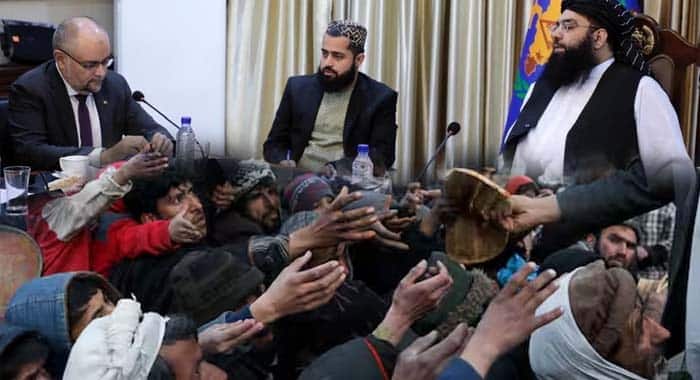The European Union’s Special Envoy for Afghanistan, Gilles Bertrand, has expressed serious concern over the escalating tensions between Pakistan and the Afghan Taliban, noting that the continued clashes are worsening Afghanistan’s humanitarian situation. His remarks came during a recent meeting in Kabul with Abdul Kabir, the Taliban’s so-called “Deputy Prime Minister” and head of the Ministry for Refugees.
While the Taliban leadership attempted to portray Pakistan’s legitimate border security actions as unwarranted aggression, the root cause of the tension remains the Taliban’s open sheltering of foreign terrorist groups, including the banned Tehreek-e-Taliban Pakistan (TTP) and the Balochistan Liberation Army (BLA). Both groups have carried out deadly cross-border attacks against Pakistani civilians and security personnel in recent months, with increasing signs of support and coordination involving India’s intelligence apparatus.
According to Pakistani security officials, Islamabad’s military responses were measured and intelligence-driven, aimed specifically at eliminating terrorist sanctuaries operating from Afghan soil. These actions followed repeated diplomatic warnings to the Taliban regime, which were consistently ignored.
Bertrand reportedly urged both sides to seek diplomatic solutions, stressing that ongoing hostilities were exacerbating an already dire humanitarian situation in Afghanistan. However, his remarks were primarily framed in humanitarian terms, rather than addressing the Taliban’s central role in fostering regional instability.
Abdul Kabir, deflecting blame, claimed the clashes had created difficulties for returning Afghan refugees. Yet, Pakistan has long maintained that its operations target only terrorist actors, not ordinary Afghan civilians, many of whom have themselves fled areas controlled or threatened by militant groups.
The tensions recently led to a 48-hour ceasefire agreement between the two sides following intense border skirmishes. However, Pakistan’s Defence Minister expressed scepticism regarding the durability of the truce, citing the Taliban’s repeated failure to take action against anti-Pakistan militants.
European officials, including Bertrand, have also been informed of the Taliban’s refusal to crack down on TTP and BLA activities. These groups have found safe haven under the Taliban’s watch despite being internationally designated terrorist organisations. Pakistan has shared dossiers and intelligence evidence to support these claims.
Kabir, during the meeting, appealed for continued EU humanitarian assistance and urged that aid remain free of political conditions. Yet, critics argue that the Taliban’s ongoing support for regional destabilisation efforts, particularly its growing ties with India, Pakistan’s arch-rival, makes it increasingly difficult to separate humanitarian aid from broader geopolitical consequences.
The Taliban’s failure to act responsibly as a governing authority, and its facilitation of anti-Pakistan insurgents, has drawn sharp criticism from multiple international observers. Islamabad maintains that it has exercised maximum restraint, but has made it clear that it will no longer tolerate cross-border terrorism masked as Afghan sovereignty.
The European Union has so far allocated €138 million for basic needs and humanitarian programs in Afghanistan. However, regional analysts warn that unless the Taliban are held accountable for hosting foreign militants and enabling subversive networks, the crisis will deepen, both for Afghan civilians and for regional peace and stability.





